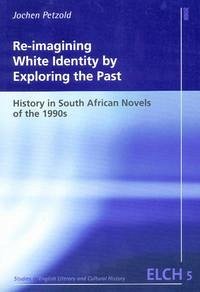This study intends to show how seven novels by four South African authors (re)imagine white identity by re-examining the past, at a moment in the history of South Africa where the narratives of identity-formation are undergoing considerable changes. Established concepts of South African identities werde destabilized by the political changes of the 1990s which ended white minority rule; identities can now be renegotiated in a post-apartheid setting. The idea of a shared history plays an important role in the construction of collective identities, and in various ways the novels by André Brink, Anne Landsman, Mike Nicol and Jo-Anne Richards explore South Africa’s past, exposing the breaks and fissures that were covered up by the ,intentional history‘ the apartheid system used to legitimize its version of white identity and white supremacy. The analysis of the seven novels emphasizes how new concepts of white identity are explored by either strenghtening or deconstructing those forces that create external boundaries for group identity on the one hand, and those forces that homogenize the internal heterogeneity of the group on the other hand. Finally, the question is pursued to what extent the seven novels can be read as individual attempts at building (or imagining) a ,Rainbow Nation‘.
Bitte wählen Sie Ihr Anliegen aus.
Rechnungen
Retourenschein anfordern
Bestellstatus
Storno

